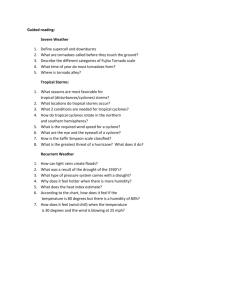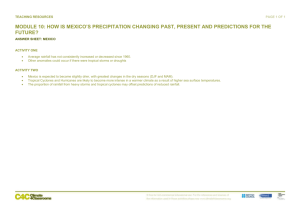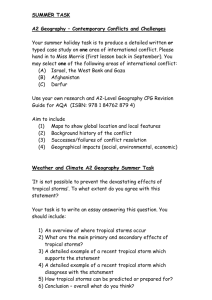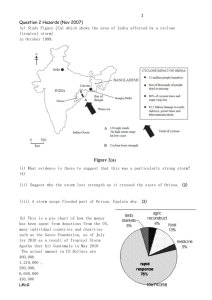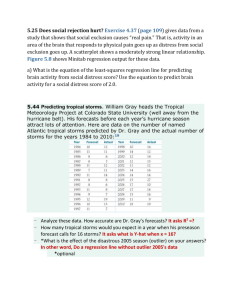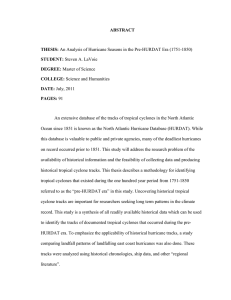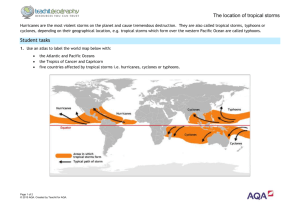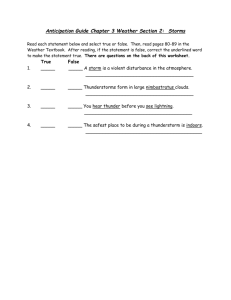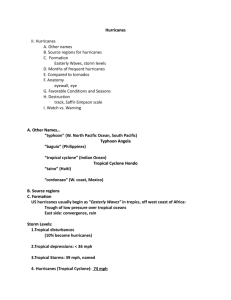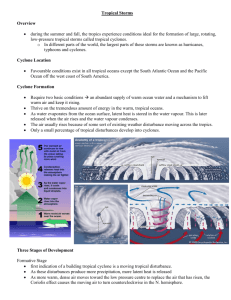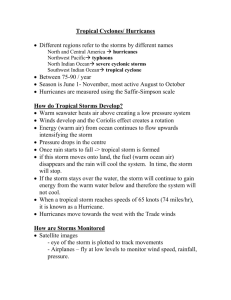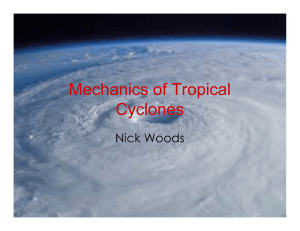Are You suprised ?
advertisement
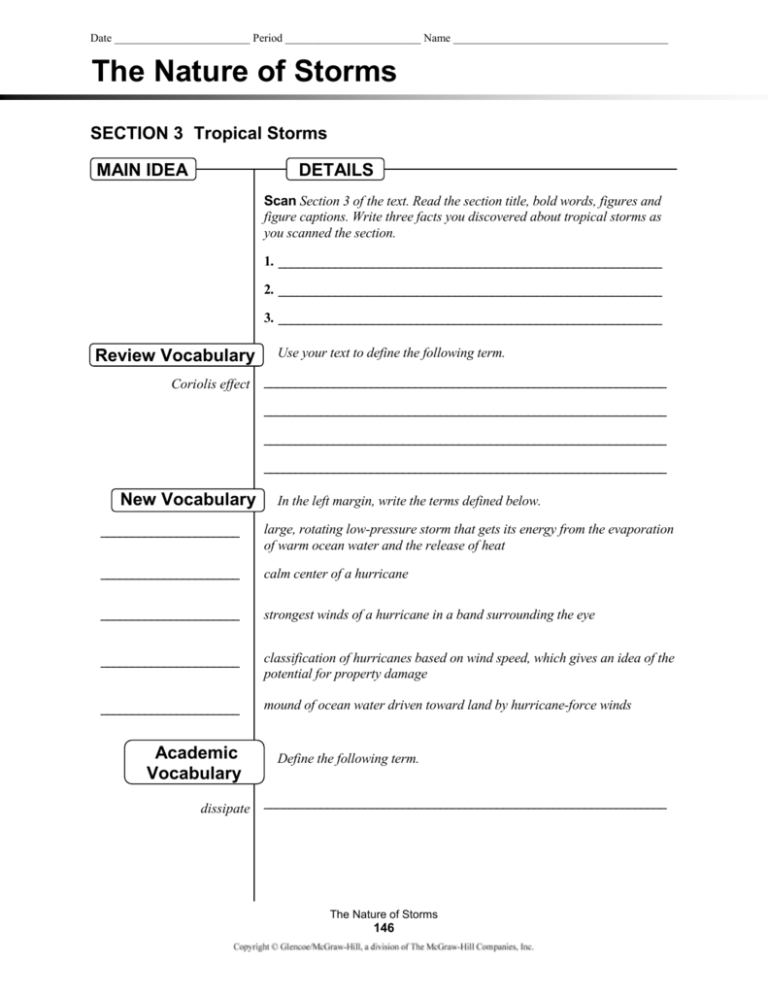
Date ________________________ Period ________________________ Name ______________________________________ The Nature of Storms SECTION 3 Tropical Storms MAIN IDEA DETAILS Scan Section 3 of the text. Read the section title, bold words, figures and figure captions. Write three facts you discovered about tropical storms as you scanned the section. 1. _____________________________________________________________ 2. _____________________________________________________________ 3. _____________________________________________________________ Review Vocabulary Coriolis effect Use your text to define the following term. ________________________________________________________________ ________________________________________________________________ ________________________________________________________________ ________________________________________________________________ New Vocabulary In the left margin, write the terms defined below. ______________________ large, rotating low-pressure storm that gets its energy from the evaporation of warm ocean water and the release of heat ______________________ calm center of a hurricane ______________________ strongest winds of a hurricane in a band surrounding the eye ______________________ classification of hurricanes based on wind speed, which gives an idea of the potential for property damage ______________________ mound of ocean water driven toward land by hurricane-force winds Academic Vocabulary dissipate Define the following term. ________________________________________________________________ The Nature of Storms 146 Name __________________________________ SECTION 3 Tropical Storms (continued) MAIN IDEA DETAILS Tropical Cyclones List the three names used around the world for tropical cyclones, and Use with pages 355–357. identify the locations where each is used. Name Locations A. ____________ i. _______________________ B. ____________ i. _______________________ C. ____________ i. _______________________ ii. _______________________ iii. _______________________ iv. _______________________ Analyze the formation of tropical cyclones in the outline below. I. Two conditions required for a tropical cyclone to form: A. __________________________________________ B. _________________________________________________ II. Two tropical oceans where tropical cyclones do not form: A. __________________________________________ B. ________________ III. Two reasons tropical cyclones do not form in those two places: A. _____________________ B. ________________ Sequence the steps in the process of the formation of a hurricane. The first one is done for you. _______ disturbances produce more precipitation, more energy is released 1 _______ as water evaporates from the ocean surface, latent heat is stored _______ the Coriolis effect causes moving air to turn counterclockwise in the northern hemisphere _______ rising air creates a low pressure area at ocean’s surface _______ latent heat released, when air begins to rise and clouds form _______ cyclonic rotation of a tropical cyclone is produced The Nature of Storms 147 Name __________________________________ SECTION 3 Tropical Storms (continued) MAIN IDEA DETAILS Cyclone Model a hurricane, as seen from above. Use Figure 14 in your text as a Formation guide. Your drawing should include: Use with pages 356–358. • descending air • eye • direction of rotation • eyewall • warm moist air Complete the following sentences. A hurricane usually _______ strength as it moves over ______ or ____________ because it has no access to the ________________ from which it draws its energy. Hurricanes __________________in intensity over their life cycle as they interact with ________________________. Hurricane Analyze why storm surge is a hazard of hurricanes by completing the Hazards statements. Use with page 359. Storm surge occurs when _____________________________________ , drive a _____________________________________________ . Storm surges can sometimes reach___________________ , and will be worse if _____________________________________________ . REAL-WORLD CONNECTION In addition to storm surges, hurricanes can cause additional flooding because of the huge amounts of precipitation that occurs. Although mountains might seem like a safe place to avoid a hurricane, explain why it acutally could be a dangerous place to be. ________________________________________________________________________________________ ________________________________________________________________________________________ ________________________________________________________________________________________ The Nature of Storms 148
